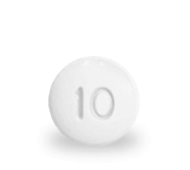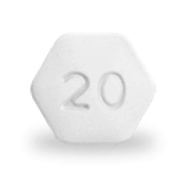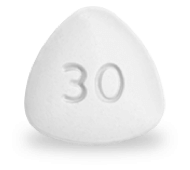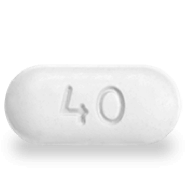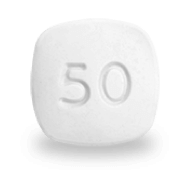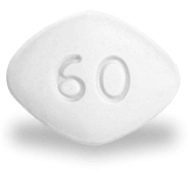Vyvanse Dosage, forms & strengths
Vyvanse is a prescription drug containing lisdexamfetamine dimesylate as the active ingredient. It is FDA (U.S. Food and Drug Administration) approved for the treatment of ADHD (attention deficit hyperactivity disorder) in adults and children 6 years of age or older, as well as to help manage binge eating disorders in adults. Lisdexamfetamine dimesylate is converted in the body to dextroamphetamine which is one of the active ingredients in Adderall and Adderall XR.
Vyvanse forms and strengths
Vyvanse is available as capsules and chewable tablets in the following doses which are taken once daily: Capsules: 10 mg, 20 mg, 30 mg, 40 mg, 50 mg, 60mg, 70 mg, Chewable tablets: 10 mg, 20 mg, 30 mg, 40 mg, 50 mg, 60mg.
Vyvanse dosage for adults
The recommended starting dosage for adults is 30 mg. The dosage can be increased by 10 to 20 mg weekly until the most effective dose is achieved. The maximum dosage is 70 mg per day.
Vyvanse adult dosage by weight chart
| Indication | Initial dosage | Maintenance dosage | Max dosage |
|---|---|---|---|
| ADHD | 30 mg one daily in the morning | 30-70 mg once daily in the morning | 70 mg daily |
| Binge-eating disorder | 30 mg one daily in the morning | 50-70 mg once daily in the morning | 70 mg daily |
Vyvanse dosage for attention deficit hyperactivity disorder (ADHD)
Lisdexamfetamine dimesylate is converted in the body into an amphetamine called dextroamphetamine, which increases your brain activity. It does this by increasing the levels of dopamine and norepinephrine in your brain. Vyvanse increases your brain activity in the areas of the brain responsible for attention, self-control, and decision-making. This allows you to focus better and manage your impulses.
The standard dose for ADHD in adults is 30–70 mg taken once daily in the morning, with a maximum dose for ADHD in adults of 70 mg per day.
Vyvanse dosage for binge-eating disorder (BED)
Vyvanse is used to treat moderate to severe binge-eating disorder (BED). First-line treatment for BED is usually a different form of psychotherapy however, medications are also used with therapy, or as a first-line treatment when therapy is not available or wanted.
Vyvanse has been shown to reduce the number of binge-eating episodes. It does this in a similar way as it does to help people control ADHD symptoms. Increasing nerve activity in the area of the brain responsible for impulse control helps give people more control over their impulsive eating.
The standard dose for binge-eating disorder in adults is 50–70 mg taken once daily in the morning, with a maximum dose for binge-eating disorder in adults of 70 mg per day.
Vyvanse dosage for children
Vyvanse is approved to treat ADHD in children and adolescents between the ages of 6 and 17 years. Vyvanse can prevent growth in children, so weight and height will be monitored. Vyvanse treatment may be stopped if your child is not growing or gaining weight.
The standard dose for children ages 6 and older is 30–70 mg taken once daily in the morning, with a maximum dose for children ages 6 and older of 70 mg per day.
Vyvanse pediatric dosage by weight chart
| Indication | Age | Initial dosage | Maintenance dosage | Max dosage |
|---|---|---|---|---|
| ADHD | 6-17 years | 30 mg once daily in the morning | 30-70 mg once daily in the morning | 70 mg daily |
Vyvanse dosage restrictions
Vyvanse may cause problems if you have certain medical conditions such as high blood pressure, glaucoma, heart disease, or an overactive thyroid. Vyvanse may not be recommended if you have heart problems such as an irregular heart rate, or a family history of sudden death.
Other medical conditions may require closer monitoring for side effects, (such as sudden death, stroke, and heart attack in adults, or sudden death in children who have serious heart problems or heart defects, increased blood pressure and heart rate) especially if you have circulation problems, suffer from seizures, have a severe mental illness such as psychosis, bipolar disorder, or have depression.
Vyvanse is classed as a controlled substance due to its high potential for drug abuse, dependence, and withdrawal symptoms when discontinued.
Your maximum dose will be affected if you are renally impaired. For a glomerular filtration rate (GFR) of 15–30, your maximum daily dose will be 50 mg. For a glomerular filtration rate (GFR) less than 10 your maximum daily dose will be 30 mg.
How to take Vyvanse
Vyvanse is taken once daily, in the morning, with or without food. Vyvanse is long-acting, for up to 14 hours.
- You should take Vyvanse as directed by a healthcare provider, at the recommended dose. Your dose may need to be amended to achieve the most effective dose for you
- You should read the medication guide or prescribing information
- You must store this medicine in a safe child-proof container at room temperature, away from direct light
- Swallow Vyvanse capsules whole with a glass of water. If you cannot swallow the capsule whole you may open the capsule and sprinkle the powder into yogurt, orange juice, or water. Make sure you swallow the entire mixture immediately
- Vyvanse chewable tablets should be chewed entirely before swallowing
Vyvanse dosage FAQs
How long does it take Vyvanse to work?
This is normally after 2 hours with the maximum effects occurring 1 – 3.5 hours after taking a Vyvanse capsule. Taking Vyvanse with food will delay its maximum effects by an hour.
How long does Vyvanse stay in your system?
Vyvanse has a half-life of 12 hours, but you should see benefits from a single dose for up to 14 hours. It will take 2 to 3 days for your body to completely clear Vyvanse from your bloodstream.
What happens if I miss a dose of Vyvanse?
Take a missed dose as soon as you remember however, Vyvanse is a long-acting stimulant and a dose taken in the late morning or afternoon could cause sleeplessness at night. Seek medical advice if you are unsure as to the cut-off time.
What is the maximum dosage for Vyvanse?
The maximum daily dose of Vyvanse is 70 mg per day. Do not exceed this Vyvanse max dose.
Can you overdose on Vyvanse?
Yes. A Vyvanse overdose can be fatal. Call a poison helpline and get emergency medical attention if you suspect an overdose or if you have any symptoms of an amphetamine overdose, such as restlessness, overactive reflexes, hostility, panic, fast breathing, tremor, muscle pain, muscle weakness, confusion, hallucinations, seizures, or coma.
What interacts with Vyvanse?
- Monoamine oxidase inhibitors (MAOIs), used to treat depression, Parkinson’s disease, or infections
- Drugs that raise serotonin levels and increase the risk of serotonin syndromes such as antidepressants, SSRIs, SNRIs, triptans (migraine medications), anti-nausea drugs, treatments for seizures, dietary supplements such as St. John’s wort or tryptophan
- Other stimulants – nasal decongestants, appetite suppressants, and caffeine
- Depressants like alcohol, sleeping pills, barbiturates, anticonvulsants, opioids
- Drugs that interfere with the breakdown of dextroamphetamine such as CYP2D6 inhibitors
Tell your healthcare provider about all prescription drugs and over-the-counter medications and supplements you are taking.
What are the side effects of Vyvanse?
Common side effects of Vyvanse include restlessness, dry mouth, loss of appetite, and weight loss.
Serious side effects include cardiovascular problems, such as high blood pressure, psychosis, or manic symptoms.
What happens when you mix Vyvanse and alcohol?
Alcohol is a central nervous system depressant and has the opposite effect of Vyvanse, which is a CNS stimulant. Mixing alcohol with Vyvanse and other stimulant medications can cause an increased heart rate, chest pain, high blood pressure, anxiety, and depression as well as increasing the risk of serotonin syndrome.
Is it safe to take Vyvanse during pregnancy?
Vyvanse has been linked with premature delivery and low birth weight. Amphetamines are passed into breast milk and nursing mothers are encouraged to not take Vyvanse or stop breastfeeding due to possible adverse effects on the baby.
There is a pregnancy exposure registry that monitors pregnancy outcomes in women exposed to ADHD medications during pregnancy. Healthcare professionals are encouraged to register patients by calling the National Pregnancy Registry for Psychostimulants at 1-866-961-2388 or visiting online at https://womensmentalhealth.org/clinical-and researchprograms/pregnancyregistry/adhdmedications/.
Related medications
Vyvanse images
Vyvanse capsule strengths
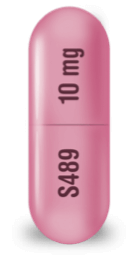
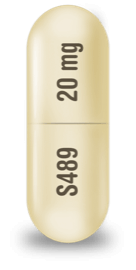
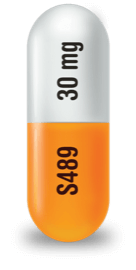
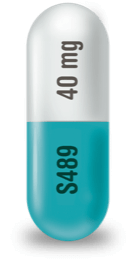
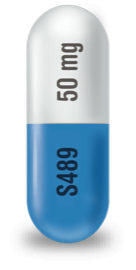
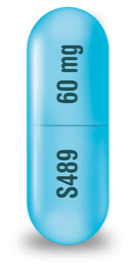
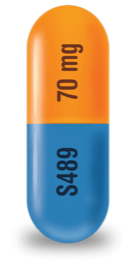
Vyvanse chewable tablet strengths
